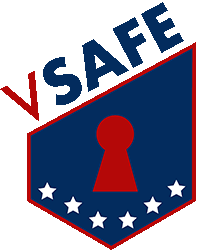Common Schemes
You should be aware of these schemes in case someone asks you to participate in, or you see fraudulent activity. Indicators of potential fraud include the following:
- Receiving a large check from a bogus company to purchase your work equipment, like a computer, and then asking you to repay the excess funds via a wire transfer service, cryptocurrency, or gift cards.
- Charging a fee for assisting you with completing an employment application.
- Offering a wage that is higher or lower than the average wage for that job. Check current wages on the internet.
- Claiming you can make lots of money working from home with little time and effort.
- Submitting your job application through a link that is not connected to the company’s official website.
- Asking to continue the conversation on a different communication platform than the current one being used.
- Using vague language in the job description that is not specific to the hiring position in order to attract more people.
- Receiving unsolicited job offers that originate from a call or text message.
Tips to Avoid Scams
Do’s
- Use reliable sources. When searching for a government job, use USAjobs.gov, the Federal government’s official site for job openings nationwide. CareerOneStop.org offers links to employment and training programs in each state.
- Verify job openings before you apply. Look for job postings on the organization or company’s official website. Scammers post fake job ads or hijack legitimate job postings to trick you into sharing personal information. Most company sites include a “career opportunities” or “jobs” section that you can use to confirm the validity of a job posting.
- Research the company, hiring manager, or recruiter. Include words like “scam,” “review,” or “complaint” to see if they’ve scammed other people.
- Ask questions about the job description. Scammers will post vague language about the prospective job.
- Read the fine print. If a job ad looks too good to be true, it is most likely a scam.
- Talk to someone you trust. Describe the offer to them and find out what they think. This also helps give you vital time to think about the offer.
- Be cautious of conducting interviews through texting applications. Scammers often insist on communicating through instant messaging apps such as Telegram Messenger, Google Hangouts, or WhatsApp.
Don’ts
- Do not provide sensitive personal information during an interview. Potential employers do not need your Social Security number, driver’s license number, or bank account information during a job interview. That is a scam.
- Do not pay for the promise of a job. Scammers charge fees for the promise of a job or to help you fill out job applications. Legitimate employers, including the Federal government, will never ask you to pay to get a job.
- Do not bank on a “cleared” check. No legitimate potential employer will ever send you a check and then tell you to send on part of the money or buy gift cards with it. That’s a fake check scam. The check will bounce, and the bank will want you to repay the amount of the fake check.
- Do not apply for jobs reshipping packages or reselling merchandise. While it seems enticing to work from home, these jobs are actually part of larger scams. Not only will you most likely not receive a paycheck, but you will also be working with the scammers to steal from others.
- Do not trust unexpected calls, unknown or with caller ID. Your caller ID might show a real company name or phone number, but scammers can fake caller ID. If it is a legitimate caller, they will leave a voicemail and contact information that you can verify before returning their call.
- Do not click on links from unsolicited text messages promising job opportunities. The link you click could lead to divulge personal or financial information. Clicking on a link in a text could also infect your phone with malware.





